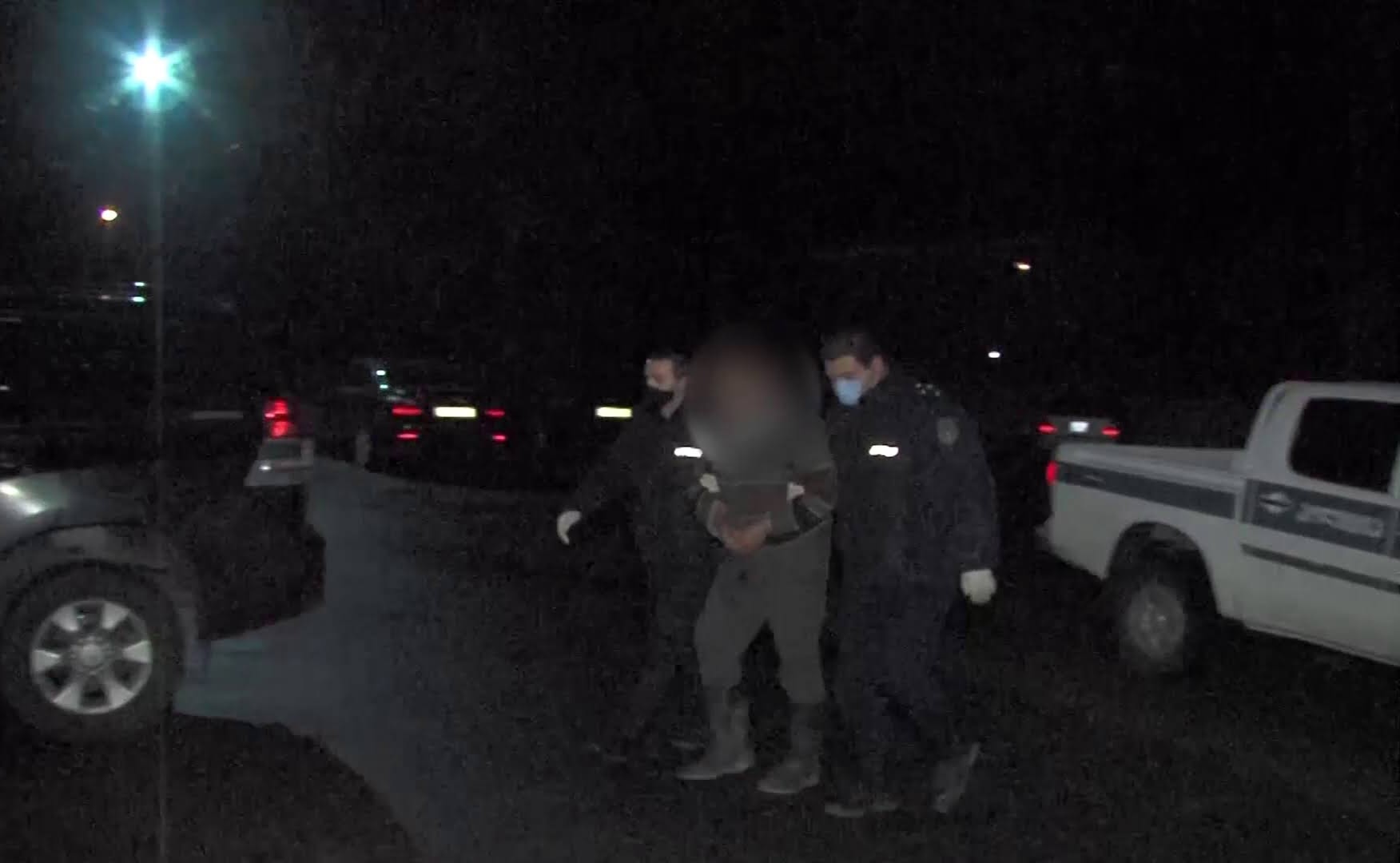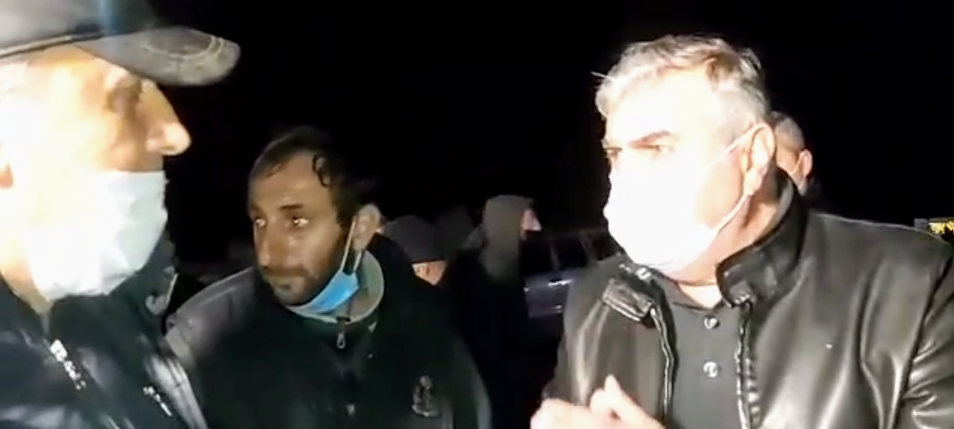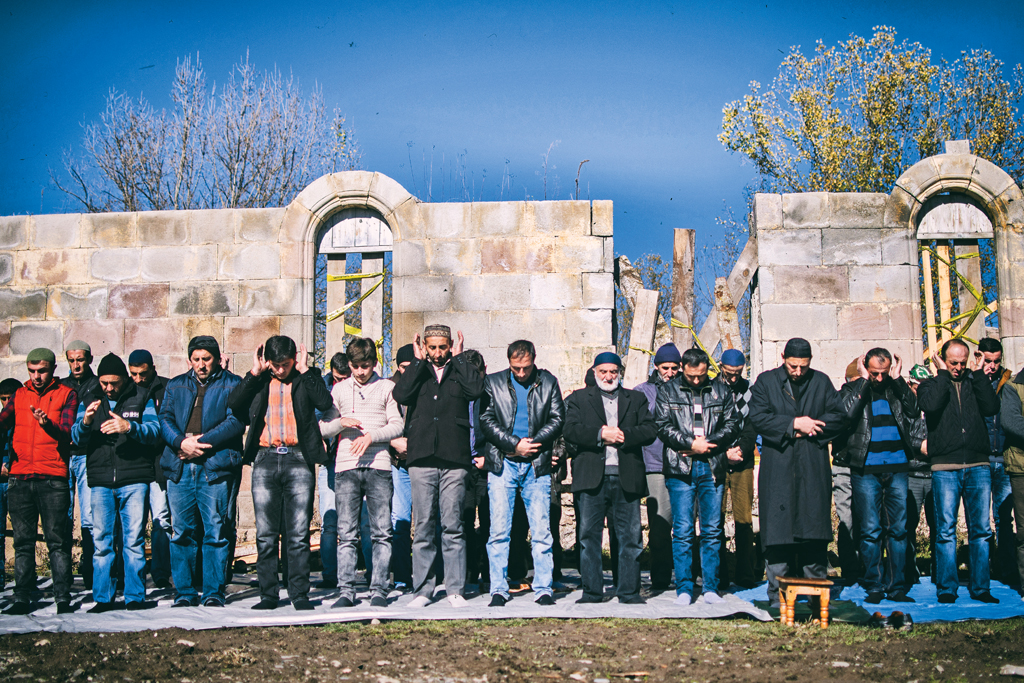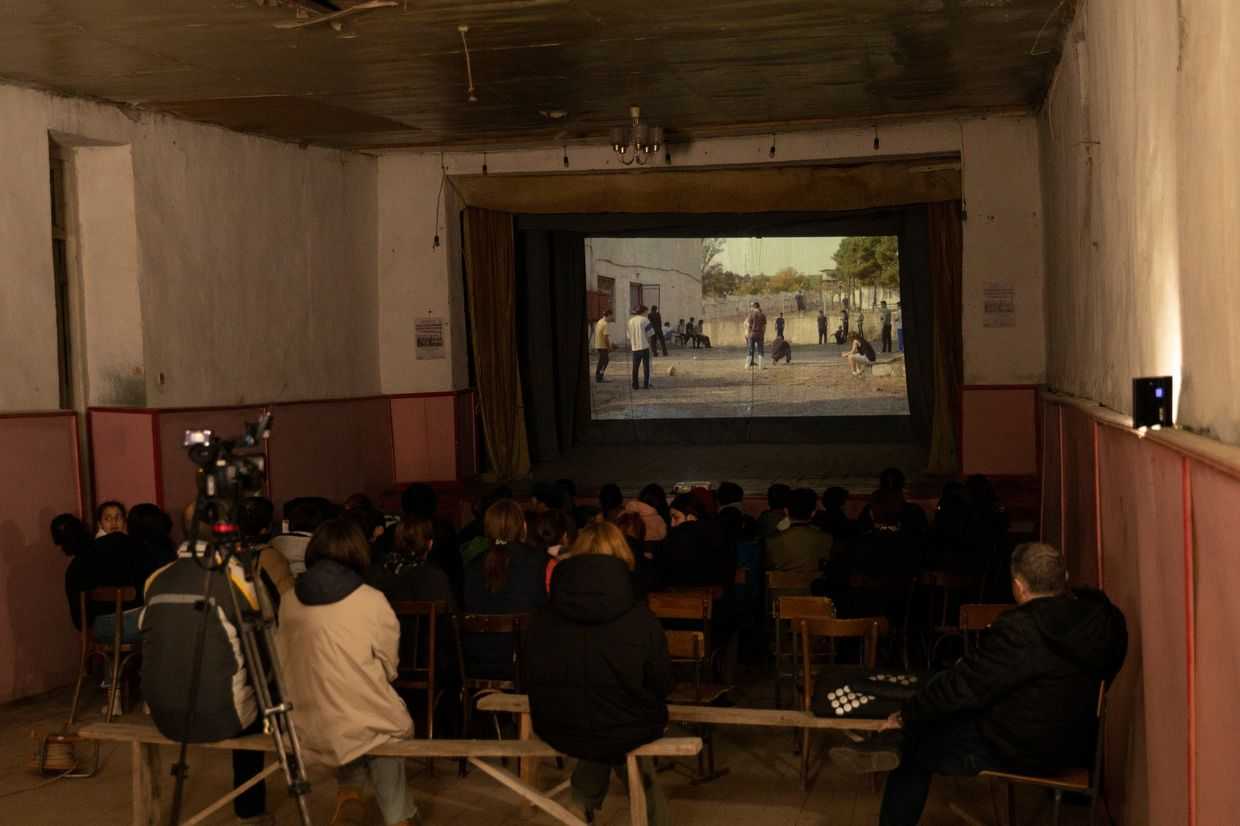
A religious dispute that has recently escalated into violence, has split Buknari village in Georgia’s Guria region along religious lines. Critics have accused the government of mishandling the situation and manipulating the locals with promises during the election campaign.
On 14 January, local Muslims gathered in the centre of the Buknari village in the southwestern Georgian region of Guria for a third day, demanding for their right to congregate and pray free from the threat of violence.
A day earlier, local police made sure that rival rallies held by Muslim and Christian protesters did not come in contact with each other in the village centre.
Muslim protesters breached the police cordon that tried to contain them until a rival rally in the village centre was over. Video by Guriis Moambe
Despite the continuing protest, Guria Governor Zurab Nasaraia, and Irakli Kuchava, the Mayor of Chokhatauri Municipality — into which Buknari is incorporated — have insisted that the disagreement ended after a joint meeting held between protests leaders and authorities on a previous night.
In recent weeks, the dispute between the two communities in Guria’s Chokhatauri Municipality escalated when local Christians protested local Muslims using a house they had purchased as a place to gather and pray.
On 12 January, the disagreement descended into the physical violence, resulting in at least three injured members of the Muslim community. The authorities confirmed that two young men, including one minor, were hospitalised with non-life-threatening head injuries after they were hit with a stone in Buknari.

The following day, Georgian President Salome Zurabishvili underlined that no one had a right to limit a constitutionally guaranteed freedom of religion in Georgia.
A permit to pray privately?
‘This is a secular state. No one’s religious rights can be curtailed. However, all this should be organised in a religious building with an agreement and in line with the law’, Chokhatauri Mayor Irakli Kuchava told Muslim protesters in Buknari on 12 January.
After the mayor’s comments, Tbilisi-based rights group EMC reminded authorities in Guria that believers did not have to hold prayers in a specially designated building and were free to congregate and hold religious rituals in a private home and it did not need an additional permit as long as related construction was not planned.

‘There’s a controversy over a prayer house in the village. There have been meetings during the last three weeks and we are trying to solve this issue optimally’, Kuchava told local news agency Guria News shortly after the Tuesday incident.
In their 13 January statement, the Georgian Muslims’ Union called the recent attack in the village of Buknari ‘extremely alarming’ adding that it ‘reflected the government’s attitude towards religious minorities’.
‘The sense of impunity encourages more crime’, the statement warned.
Georgian Public Defender Nino Lomjaria agreed with the sentiment, noting on 12 January that the ‘very unfortunate’ incident in Buknari was a ‘vivid example’ of the discriminatory treatment of Muslims in Georgia.
A troubled history
In recent years, Georgia has witnessed at least seven high-profile Christian-Muslim disputes and anti-Muslim incidents throughout the country.
In February 2016, three Muslims were injured as a result of a brawl in the village of Adigeni in southern Georgia after the local Muslim community requested authorities to allocate a separate cemetery space for Muslims.
Two years earlier, in the coastal town of Kobuleti, in the Adjara region, a pig’s head was nailed to the gate of the Muslim boarding school. A number of local residents had previously voiced vociferous objections to the opening of the school.

In the Adjara region’s capital, Batumi, the Georgian Muslims’ Union has been involved in a years-long legal battle to obtain a permit for constructing a mosque in the city. In September 2019, the Batumi City Hall recognised that their previous refusal to grant such a permit in 2017 was, in fact, ‘discriminatory’.
This was a rare case in which a Georgian court confirmed that there had been discrimination against Muslims by the authorities. Meanwhile, violent incidents against Muslims have almost always been investigated as cases of ‘hooliganism’ or ‘violence’, without the acknowledgement that they were motivated by intolerance.

There has also been a long-standing controversy in relation to the role of the Georgian Orthodox Church in promoting anti-Muslim attitudes. In particular, over the Church’s failure to mitigate inter-communal disputes and for sometimes being directly involved in anti-Muslim activities.
[Read more on OC Media: Georgian Muslim villages fight back against Orthodox Church land-grab]
‘Trading religious feelings for political interests’
Talking to TV channel Mtavari Arkhi on 13 January, one of the local opponents of the Muslim house of worship in Buknari accused members of the Buknari Muslim community of attacking a ‘local Christian boy’ four days earlier, a claim OC Media could not independently verify.
Apart from this claim, some have also insisted that in the run-up to the recent parliamentary election, the Georgian government allegedly promised to help Buknari’s Muslim community build a mosque in exchange for their votes.
This claim has also not been independently verified.
Following the news on the altercation in Guria, this allegation was highlighted by members from the socially liberal opposition groups — including Sopio Shamanidi from the Georgia for Lelo Party and Kakha Askurava, the head of the local office of the United National Movement Party (UNM) — as a regular practice of the government.
‘When the elections are over, they [the ruling Georgian Dream party] then try not to offend local Orthodox Christians and let things take their own course, which in most of the cases leads to physical altercations’, UNM’s Kakha Askurava wrote on his Facebook hours after the incident.
Askurava warned that such clashes would continue until the local and central governments stop ‘trading with religious feelings for the sake of their own political interests’.









